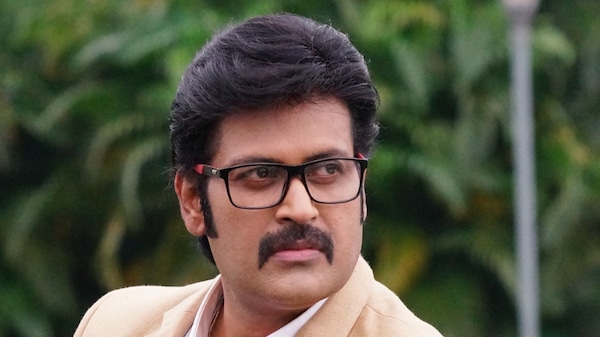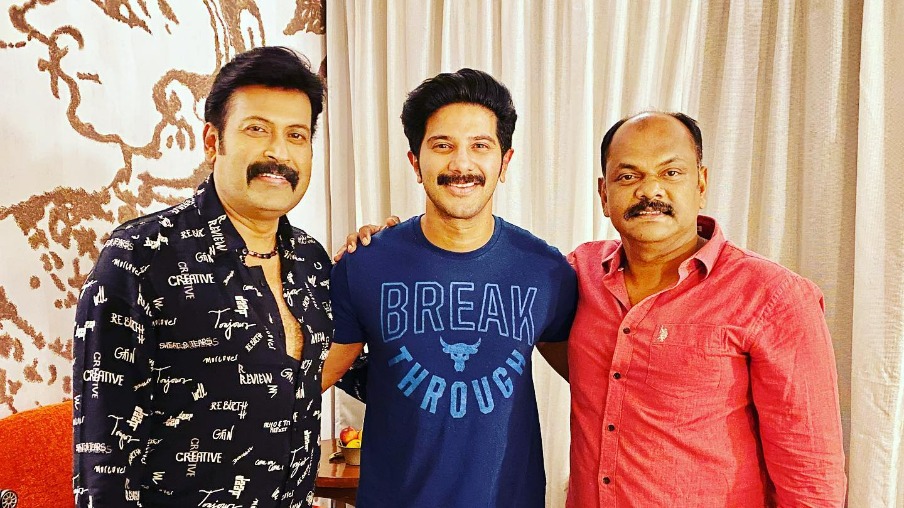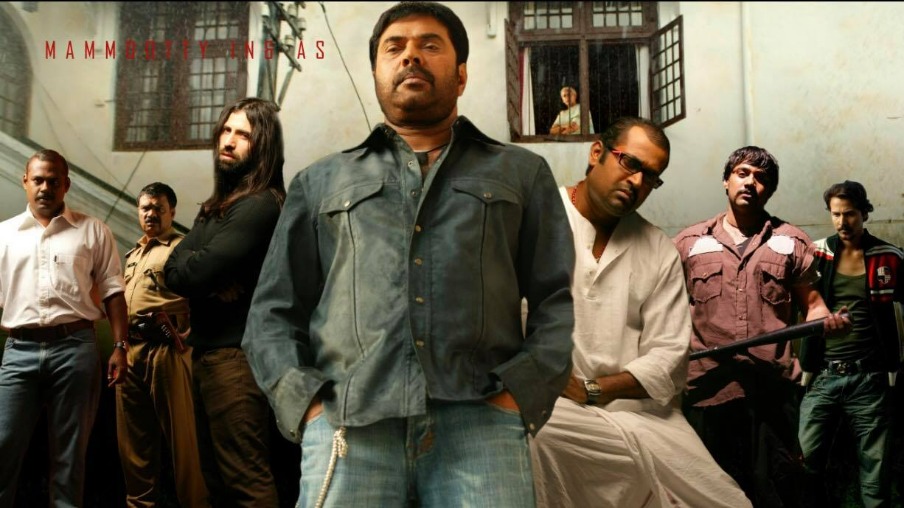Exclusive! Manoj K Jayan: I believe that an actor has to journey with cinema as it evolves
The Mollywood actor talks about his upcoming films such as Dulquer Salmaan’s Salute and recounts his memorable characters in his 33-year-old career

Last Updated: 10.04 AM, Sep 18, 2021
To stay active for 33 years in the film industry and constantly keep evolving to avoid being stereotyped is a rare feat that Manoj K Jayan has been doing with ease. Throughout his career, just when you think he has been pigeonholed in a particular mould, he springs a surprise. Time and again, he has managed to do it and what’s unique about it is that he has been part of both critically acclaimed films such as Sargam and Anandabhadram and also trendsetters such as Big B, Thattathin Marayathu and Neram.
In an exclusive interview with OTTplay, the veteran actor talks to us about his anticipated Dulquer Salmaan-starrer Salute, his popular characters and getting to work with legends and debutants.
You are working with Dulquer for the second time with Salute. Bejoy Nambiar’s Solo again had you as a mentor figure to his character.
I played a local don in Solo, but in Salute, it’s a diametrically different role. I play Dulquer’s elder brother in the movie and both of us are police officers in it.
Salute was a movie that was made during the pandemic and so the production team had to be vigilant all the time. With Dulquer also producing the movie, how was the experience shooting the film?
It was unbelievable. I can’t remember a space where I got so much care, comfort and respect in recent times. On the second or third day of shooting, the production house's team came to my room with a gift hamper. I heard they were giving it to everyone who was part of it, but I felt really happy because it was a new experience for me.
Apart from that, they were constantly looking after us. ‘Don’t make chettan wait on the sets if there’s no work,’ Dulquer kept saying; so those were the kind of things that mattered. Another instance that I can recall about him was that one night, both of us completed work around the same time at 10pm. Dulquer got changed and went first, and I followed in my car. He then slowed down and used the indicator to signal us to overtake him. It might be something minor, and he really didn’t have to do it. He finished the shoot late at night and could have rushed to his hotel; but there again he showed respect to let my car go ahead. These actions show the individual he is; a gem of a person.

It’s also the first time you are working with director Rosshan Andrrews, despite him being active in the industry for over 15 years now.
I am someone who has been keenly following his growth from Udayananu Thaaram. I have known him since he was an assistant director; he has even handled the clapboard for my films. He used to be extremely curious back then too as he would constantly ask me questions about how I did a particular scene. I had noticed his passion for learning cinema and becoming a director.
Though we hadn’t collaborated till Salute, he had approached me for Evidam Swargamanu but I couldn’t take it up because I didn’t have dates. He had also offered a prominent role in Kayamkulam Kochunni, which I couldn’t do either. He considers me a brother, more than an artiste. So, when he called me for Salute, he told me, ‘Chetta, you have missed two opportunities. We have to collaborate for this one’. I was in London when he called and was supposed to arrive only after the dates he had requested. But for the movie, I flew down early, finished quarantine and then joined the shoot.
After Hariharan sir, Roshan is probably the only other filmmaker in this generation who captures even the minutest expressions of actors. He is precise that way because he extracts exactly what he wants from all artistes. Roshan has a clear-cut idea about his film and wants exactly that. That’s why he is strict on the sets.
You have already played a few noticeable roles as a cop in movies like Thattathin Marayathu and Phantom.
To be frank, I actually haven’t played many such characters. From the ones I have done, I loved the negative cop role in Phantom. He is a terrific villain and people still appreciate me for that. In Praja, though the character’s growth was stunted after the interval, it had impactful scenes. In Thattathin Marayathu, it was a humorous role. So, I could bring in variety with each police officer role.
So, how different is Salute’s Ajith Karunakaran from these?
The tonsured cop from Phantom is an arrogant and despicable villain. But Thattathin Marayathu’s Prem Kumar is a romantic at heart. Praja’s David Abraham is someone who used to work as a child and then with the help of Mohanlal’s character becomes an IPS officer; he is the hero’s sidekick. Salute’s Ajith Karunakaran is an experienced and revered DySP, who leads the way in showing how an ideal police officer should be.
You began your career with strong, character-oriented roles in films such as Sargam and Chamayam. But now, it’s more comedic or negative roles that are coming your way. Was there a phase in your career that you enjoyed the most as an artiste?
I still work with the same passion as I did then. I believe that an actor has to journey with cinema as it changes with time. In the initial phase, I did Kuttan thampuran in Sargam and when it unexpectedly became a huge hit, it opened up a space for me to do character roles. I then did Anto in Chamayam, which again was an entirely different role. So, maybe it’s because I got to do those versatile roles in the beginning of my career, I am being offered varied roles now.
If you look at my upcoming movies, in Aaha, I play a tug-of-war coach, in Suraj Venjaramoodu’s Higuita, I portray a communist leader like P Jayarajan and in Maradu 357 (which is re-titled as Vidhi), my character is an unlucky Gulf returnee, who buys a flat that is set to be demolished. All of these characters are different, and it’s not that I choose them, they find me. So, I am happy with my career. I have no regrets.
In spite of your lengthy career in the film industry and having worked with some stellar talents, you are one of the few veteran actors who haven’t had a clique of sorts in the industry. Is it because you chose to stay away from that?
It has always been an important aspect in the Malayalam film industry to have a friends’ circle. If you take Lalettan, he has had Priyadarshan, Sathyan Anthikad, Sreenivasan and others; Mammukka has had Fazil, Hariharan sir, Joshiy and PG Viswambharan, who did most of their movies with him. I didn’t create a social circle like that. When people call me to do films, I do my job and return. That’s how it has always been for me; it’s not that I have deliberately avoided people, I just don’t know how to network and so, I don’t try either. I am content with what I have; I am not an aggressive actor.
Anandabhadram’s Digambaran, which again was a negative role, gave a second lease of life to your career in 2005. While doing intense roles such as these, what is your process of getting into the skin of the character?
With regards to Anandabhadram, its producer Manianpilla Raju called me when he had reached Chennai. He wasn’t someone who frequently called me; he asked me if I could drop by his hotel because he wanted me to listen to a narration of his new film. So, I went there and when its scriptwriter Sunil Parameswar was narrating the story, I was getting scared. I was thinking that it was such a heavy character and I had doubts whether I would be able to pull it off. Back then I had only played 2-3 negative roles and this was probably the most sinister character anyone could play. So, I committed to the role. Apart from the narration I heard that day in the hotel room, I didn’t even read a single page of the film’s script. Before the scenes, I would just look at my lines. So, while people appreciate me for that role, it’s still a miracle to me as to how I did that role.
And then in 2011, you turned another leaf with Seniors, in which your comedy scenes had people laughing out loud in theatres.
Before I debuted in films, I did a serial called Kumilakal for Doordarshan in 1989. In 7-8 episodes of that serial, I did humour and so, essentially Malayalis saw me first doing comedy. But after Perumthachan in 1990, I got slotted into the ‘serious track’. In Chamayam too, there were certain situations where I could make the audience laugh. I was observing all of this. In Bharathan’s Venkalam, which I watched in Saritha theatre in Kochi, I saw people laugh in one scene and took confidence that I can do comedy. But after that, I wasn’t offered many comedy roles.
Then in 2011, director Vysakh, who I didn’t know before the film, called me. He said that he was planning a film that has Kunchacko Boban and Jayaram, and wanted me in an equally pivotal role. So, I went and listened to the script by Sachy and Sethu. It was a ‘pakka’ humour character and I wondered why they wanted me to play that role. For them, it was a change to have me doing a full-length comedy role. I somehow had the courage to do it and I even danced with the others in the film. So, all credit to Vysakh for making me do such a role. After that I got many such roles like in Thattathin Marayathu, Mallu Singh and Neram.
People enjoyed these characters and that was a huge relief to me because it’s a Herculean task for an actor to pull off comedy. Emotional and action roles are comparatively easier, but it’s toughest to make people laugh.
You have also worked with a lot of established new-age directors such as Amal Neerad and Anwar Rasheed in their debut film and they have offered you pivotal characters in their films.
I have always worked with debutants. Even though I wasn’t a popular actor in 1990, Perumthachan was Ajayan’s first film. I was also part of Sunderdas’ Sallapam, Blessy’s Kaazcha, Biju Varkey’s Phantom, Amal Neerad’s Big B, Anwar Rasheed’s Rajamanikyam and so many others. In all of these, I wasn’t given cliched characters. In Sallapam, I played a railway keyman, a role that I have never done. In Big B, I played Eddy John Kurishingal, an orphan who is running a restaurant for foreign tourists and is living with his family. All these directors could have easily cast me in the usual roles that I had done before. But they didn’t. In Alphonse Puthren’s Neram, I played a foolish don. So, I have been fortunate throughout my career to associate with debutants for unique roles.

To conclude, you are an actor who has worked with legends such as Bharathan and Hariharan, and also collaborated with the best filmmakers in Malayalam cinema right now such as Alphonse Puthren, Rosshan Andrrews and Vineeth Sreenivasan. How has that helped your career?
I have worked with legends such as Adoor Gopalakrishnan, Hariharan, Bharathan, IV Sasi, Mani Ratnam, Joshiy, Sathyan Anthikad, Kamal and Jayaraj in their films. And then I got to do a part in Big B which was directed by Amal Neerad, who undoubtedly kicked off the new-gen cinema in Malayalam. After that I got to collaborate with Vineeth and also Alphonse, who introduced a new format of cinema with Neram. I just wish I could continue like this, without looking at the length of screentime. If my performance will stay etched in the memories of the audience, even if it’s a single scene, I am willing to do it.
And it’s not just the directors, I also got to work with the best writers of that time. I got to be part of four of MT Vasudevan sir’s scripts, three of Lohitadas’ and also Dennis Joseph’s works. And now, with Salute, I acted in Bobby and Sanjay’s screenplay. Their scripts are a huge confidence for the artistes. If a poster has their name on it, the audience is also assured that it would be a good film. Salute, I think is a perfect script and with every dialogue, you could understand that they are experts at their craft.
Subscribe to our newsletter for top content, delivered fast.

